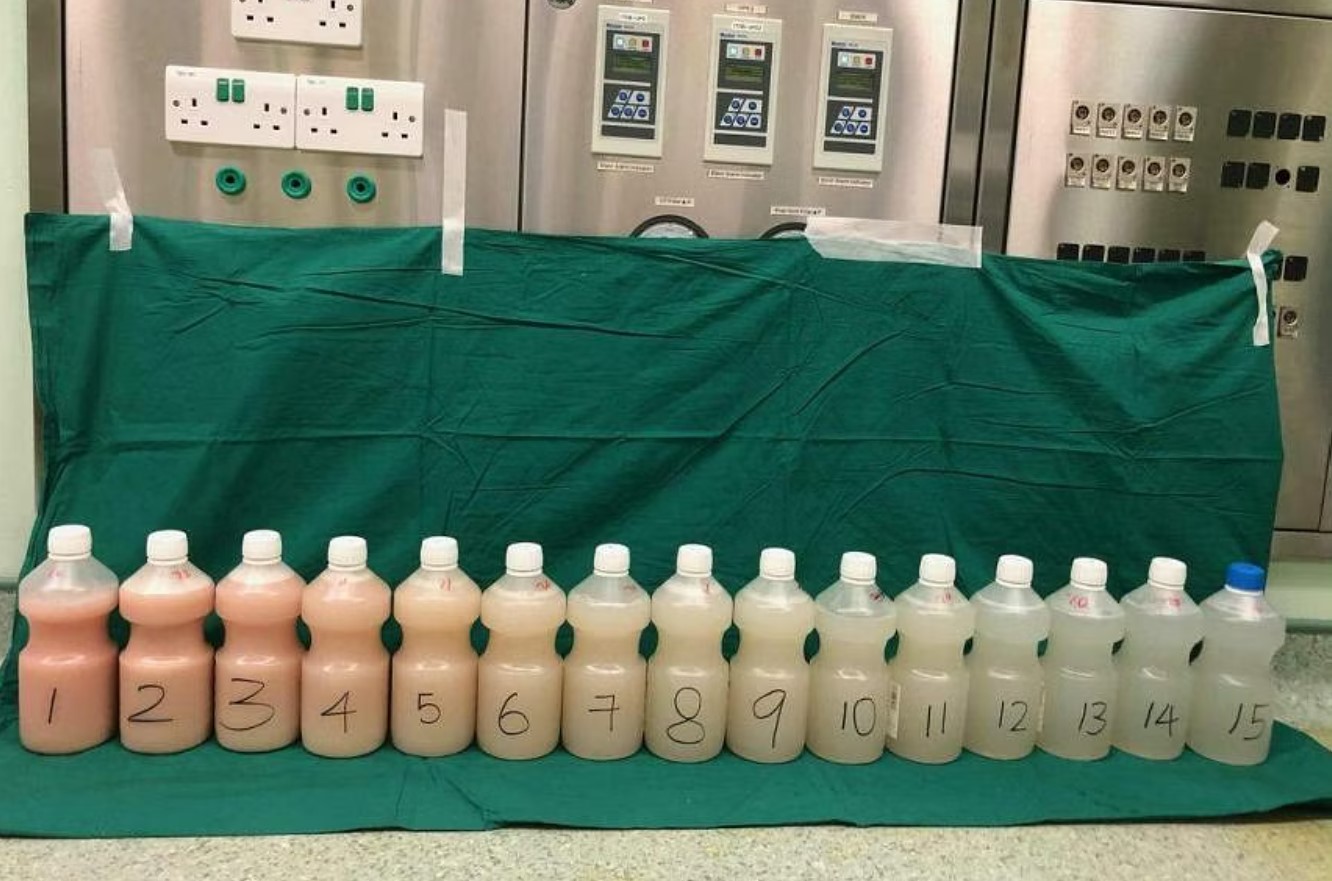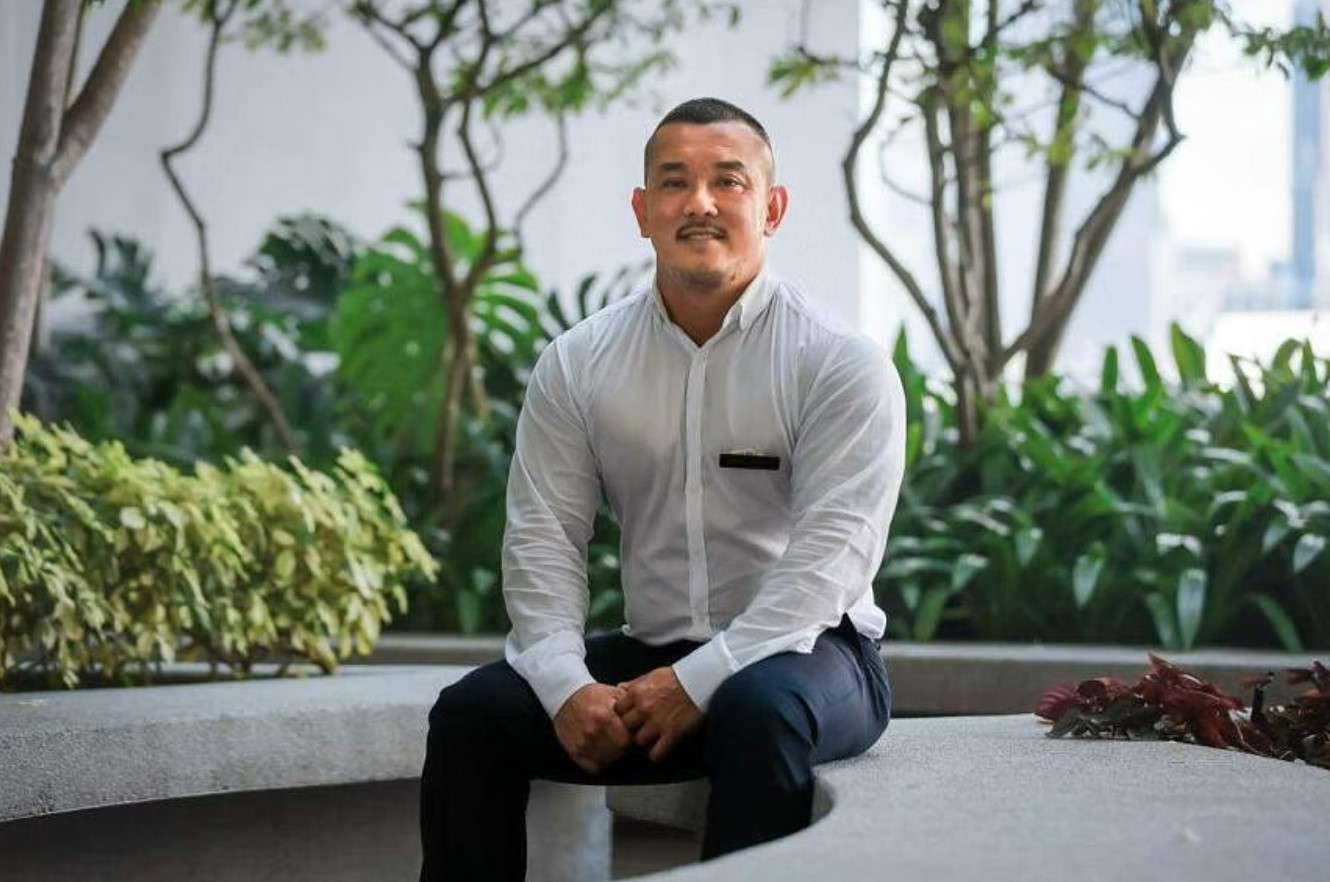'It felt like I was hit by a bus': Former vape and cigarette addict on going through lung-washing procedures after developing rare disease


SINGAPORE – A medical procedure performed only three times in the last eight years in Singapore was used on the same patient twice after he developed a rare condition, which doctors suspect may be linked to his use of electronic cigarettes or vaporisers.
Singapore General Hospital (SGH) is the only hospital here that performs the whole lung lavage treatment to treat the lung disease, pulmonary alveolar proteinosis.
It occurs when excess protein, fats and other substances build up in air sacs of the lungs. This causes breathing difficulties and can lead to death due to respiratory failure or secondary infections.
Daniel (not his real name) endured the painful and difficult procedure in 2020 and again in 2021, after he had a relapse and started smoking and vaping again.
“It felt like I was hit by a bus (after the first round). My whole body was aching for four or five days after the procedure,” said Daniel, 36.
He added that it took him nearly three months to recover and regain proper use of his lungs.
Dr Melvin Tay, a senior consultant at the department of respiratory and critical care medicine at SGH, said that during the recovery period, a patient may experience chronic fatigue.
This is because the muscles used for breathing may have atrophied, making them feel like they lack vigour.
Daniel said he tried to quit his 15-year smoking habit in 2020 after he tied the knot. His wife had encouraged him to give up smoking and he also wanted to save money for the mortgage they had on their home.
He used to spend around $150 a month on cigarettes, and would go through about 14 packs a month.
“I needed a cigarette when I woke up, after my meals and my coffee breaks. It amounted to around eight to 12 sticks a day,” he said.
After doing some research online, he decided to give e-cigarettes, also known as vapes, a shot.
“It was the cheapest and best way to quit smoking, according to people on YouTube and social media at the time,” said Daniel, a former cafe owner.

Instead of reducing his nicotine cravings, he ended up smoking and vaping simultaneously. Before long, he was experiencing spells of dry coughs and body aches.
He was diagnosed with pulmonary alveolar proteinosis, a rare disease, in August 2020, just two months after he puffed his first e-cigarette.
Daniel said: “Right after mid-July, I couldn’t breathe. I went to Changi General Hospital and was hospitalised for 14 days.
“Initially, I thought I had Covid-19. When I entered the ward, my (oxygen level) was between 87 and 91 per cent.”
He declined the doctor’s suggestion for a review of his airways and asked to be discharged. Two weeks later, his symptoms worsened.
He was intubated in Changi General Hospital for two weeks, before being transferred to an intensive care unit at SGH.
Dr Tay said pulmonary alveolar proteinosis affects fewer than one out of a million people every year, adding: “On the whole, in our own clinical suspicion, it was highly probable that vaping played a role (in his diagnosis).”

When he saw Daniel’s case, Dr Tay recalled the 2019 e-cigarette, or vaping product, use-associated lung injury (Evali) epidemic in the United States.
“When Daniel presented, we thought it was a form of Evali, but it has never been really reported in the literature because pulmonary alveolar proteinosis is a very rare condition,” he added.
Daniel had to undergo the whole lung lavage procedure in August 2020. The process is akin to a lung wash, said Dr Tay.
Warm saline is fed into one lung and the body is shaken to dislodge the built-up substances in the air sacs. Meanwhile, air from a ventilator is pumped into the other lung.
The substances mix with the solution, which turns milky. The liquid is then drained, and the procedure is repeated until the fluid becomes clear.
Dr Tay said the procedure can take between three and four hours on average, and around 15 litres of liquid may go through the patient’s lungs.

Daniel recalled that he had to undergo the procedure one lung at a time, saying: “After I had my first lung lavage, I had to recover the following week before completing the procedure for the other lung.”
It then took Daniel nearly three months to recover and regain proper use of his lungs, but he started smoking and vaping again eight weeks after leaving the hospital.
He said it was not a craving for cigarettes that made him smoke again, but the habit of smoking after meals. He felt his dry cough return immediately, but he hid it from his family.
“I smoked and vaped behind my wife’s back. I pretended to quit but I couldn’t stop. I had to hide my addiction from her,” he said.
The feeling of breathlessness returned and, by December 2020, Daniel was back in SGH.
[[nid:581067]]
Dr Tay said the hospital suspected that vaping might have triggered the body’s immune system to attack itself.
Daniel had to undergo another round of the lung-washing procedure in January 2021.
Dr Tay said that while Daniel should not suffer any long-term effects, he may be susceptible to lung injury again if he smokes or vapes in the future.
He has not had a cigarette or vaped for more than two years now. He still fights the urge to smoke after meals, but said he has replaced his need to smoke by eating desserts or sweets.
“My wife also supports me by buying more desserts for me now,” he added, laughing.
This article was first published in The Straits Times. Permission required for reproduction.